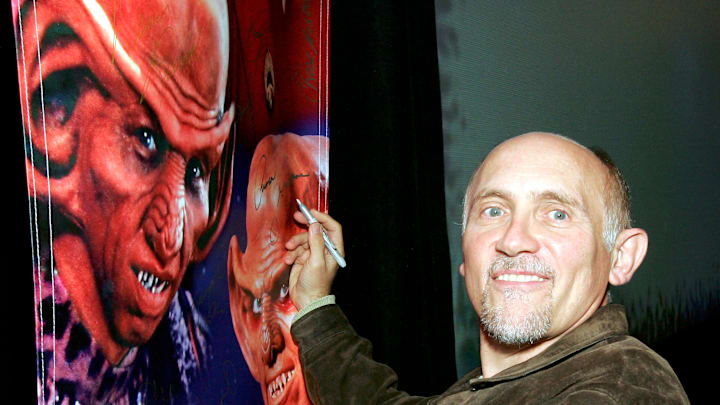Star Trek: Deep Space Nine wasn't the typical Star Trek fare. In fact, many fans were skeptical of a show that called itself Star Trek but was set on a space station instead of on a starship. Not to mention, when the show premiered, it was considerably darker than its predecessors. Though Star Trek: The Next Generation took on some heavy topics, Deep Space Nine went even deeper, and for writer, Robert Hewitt Wolfe, he didn't understand the show at first.
For Wolfe, the show wasn't as edgy as it was pitched to him, according to a report by Giant Freakin' Robot, and he was disappointed at first. He didn't think the characters were really being driven. Then one episode changed it all. That episode was the eighth of the first season, "Dax." In it, Jadzia Dax (Terry Farrell) is accused of a murder her previous host, Curzon, was supposedly responsible for. It was a chance for Wolfe and the viewers to get to know Dax better and to see just how deep these characters could go.
That episode was enough to convince Wolfe where Deep Space Nine was going. In fact, he referred to the episode as "really eye-opening" and helped him "get the show,' which wasn't an easy feat for plenty of fans.
It took quite a while before Deep Space Nine earned its spot among the beloved entries in the Star Trek franchise. There were numerous complaints about how the series began and progressed, with many fans taking issue with Major Kira's (Nana Visitor) aggressiveness. Others weren't happy that Benjamin Sisko (Avery Brooks) started out as a commander of the space station rather than a captain. And the grim tone of the show also incurred some displeasure from fans.
But the producers of Deep Space Nine knew where the show was going and didn't change its trajectory, which led to some of the most gripping tales in the franchise. Yes, the series was darker and edgier, but every episode, well, at least most of them, had a purpose and a moral. And those who committed to watching from beginning to end soon learned that the characters weren't just stuck on a space station. There was constant movement on the series, and the skies were part of the journey.
